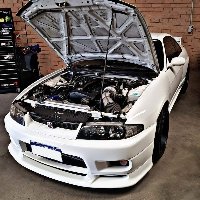High temp brake fluid?
Announcements
-
Similar Content
-
Latest Posts
-
By Watermouse · Posted
Who are you to deny yourself? I’ve said this many times to myself and apart from getting what I really want, I go quiet for a while whilst working out what I just did to my savings and how will I afford what it cost, then, next payday… -
By joshuaho96 · Posted
Not sure why but RBF660/700 or Castrol SRF is listed as DOT4, not 5.1. -
Interesting....can't say I've ever checked it, have always just changed it in the off season as practice
-
By Murray_Calavera · Posted
Just checking, when we are talking about high temp fluid, are we all referring to DOT 5.1? I haven't had any issues with changing it every 2-3 years. -
Yeah that is still true AFAIK.....good brake fluid should be changed annually because it absorbs water faster which is more often than most mechanics would do it. There are cheap tools that check water% in brake fluid if you all scientific about it. I for sure would (do) run good brake fluid in anything that even casually saw the track like Murray said; avoiding the risk of "exciting" fade is worth it
-





Recommended Posts
Create an account or sign in to comment
You need to be a member in order to leave a comment
Create an account
Sign up for a new account in our community. It's easy!
Register a new accountSign in
Already have an account? Sign in here.
Sign In Now